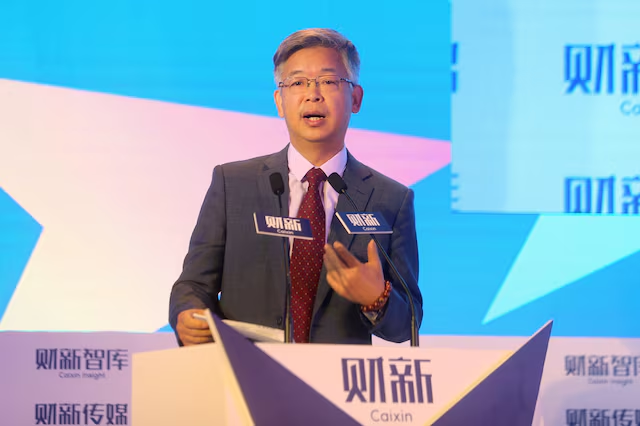China has substantial policy space to stimulate its economy this year, according to Huang Yiping, a central bank adviser and Peking University professor, who spoke at the Boao Forum on Wednesday. While recent fiscal measures have been introduced to support economic growth, Huang emphasized that reforms would be needed to boost consumption.
China aims for a 5% economic growth target this year, which many analysts consider ambitious. To meet this target, the government has raised its annual budget deficit, and the central bank has committed to reducing interest rates and injecting more funds into the economy at an appropriate time.
China’s Policy Room for Economic Growth
“There is still very big space in terms of macro policies,” Huang said during an interview at the Boao Forum. This statement highlights China’s ability to use fiscal and monetary policies to address short-term economic challenges.
Huang explained that macro policies would help China overcome cyclical problems, while some of the structural issues might require more time to resolve. He suggested that while immediate policies can stabilize the economy, long-term reforms are needed to make more significant improvements.
Reform Measures to Boost Consumption
In addition to recent government measures, Huang stressed the importance of reform in boosting consumption. He pointed out that enhancing people’s incomes and building confidence are essential to increasing domestic spending. These reforms would complement other policies already in place to boost growth.
Huang’s remarks align with the thoughts of Peng Sen, chairman of the China Society of Economic Reform. At the Boao Forum on Tuesday, Peng said that China must work to increase consumption’s share of its GDP to 70% by 2035, up from the current 55%. This goal is part of an effort to narrow the gap with developed nations, where consumption plays a larger role in the economy.
Structural Reforms to Support Growth
Peng also emphasized the need for broader structural reforms in China, including changes to income distribution, the fiscal system, and tax policies. He noted that these reforms would play a key role in fostering a more consumer-driven economy.
“Wider structural reforms, including changes in institutional frameworks, income distribution, and fiscal and taxation systems, will be necessary to help boost spending,” Peng said.
Domestic Demand and Globalization Concerns
Policymakers in China have identified expanding domestic demand, especially consumption, as a top priority for 2025. This focus comes as they try to mitigate the impact of external pressures, such as the tariffs imposed by the Trump administration on Chinese exports. Strengthening the domestic market could provide a buffer against global economic uncertainties.
Huang also expressed concerns about the future of globalization, particularly the role of the US-led global economic system. He noted that many Asian economies, including China, have benefitted from globalization over the last several decades. However, he cautioned that there is a risk of globalization being reversed in the future.
“Many of the most successful economies in the last half-century, such as China and other East Asian economies, have all benefited from globalization,” Huang said. “But there is certainly a risk that US-led globalization may be reversed.”
As the Boao Forum continues in Hainan Province, the discussions surrounding China’s economic future are pivotal for shaping the nation’s policy decisions. With significant room for policy adjustments and the need for further reforms, China is focused on boosting domestic demand and consumption to achieve sustainable economic growth in the years ahead. The outcome of these discussions will play a critical role in shaping the trajectory of China’s economy and its ability to adapt to changing global conditions.

